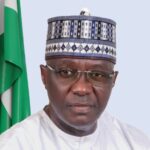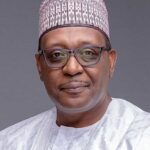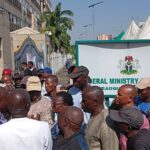The new educational language policy proposed by the federal government is a misconceived and impracticable policy whose time has not come.
Education is undoubtedly the bedrock of national development. No country can become technologically and economically advanced without having functional educational systems. That is the reason leaders of first-world countries do not treat matters which affect their schools and educational systems with levity.
In the First Republic when our political leaders were people who had a passion for education, our standard of education was high. Then, foreign students would come to the first and foremost Nigerian university, which is in Ibadan to do academic programmes so as to earn university degrees. In the succeeding years, second-generation universities were established. And they became Mecca of sorts for other education-thirsty African students seeking educational pilgrimage.
But like other things in Nigeria that were destroyed owing to the prevalent bad political leadership in the country, our educational system was bastardized and commercialized. So, the glory days of our universities are gone and far behind them.
- THE BEARING: Why Inter Ethnic Marriages Should Be Encouraged In Nigeria
- Major sporting contests for Team Nigeria in 2023
They are no longer the bastion of scientific and humanistic knowledge; neither are they places where good morals are inculcated into students. As a result, today, a great majority of people who graduated from Nigerian universities are found wanting in both learning and character.
But the assault on our schools’ educational systems did not start today. In the past, the soldiers who held sway over Nigeria carried out measures to suppress and repress the intellectual elite to avert their criticisms and prevent them from carrying out revolts. Do you still remember how Patrick Wilmot, a university lecturer at Ahmadu Bello University, Zaria, was deported from Nigeria?
And, after the exit of the military from power in 1998, successive political leaders we had in Nigeria did little or absolutely nothing to revitalize and revamp our dysfunctional educational system. That is the reason our universities produce half-baked graduates, who cannot carry out humanistic, scientific, and technological researches that can aid our national development.
Littered across the states of Nigeria are government-owned primary and post-primary schools whose buildings are decrepit and tumbledown with roofs blown off. And those schools lack science laboratories; and their libraries suffer from a dearth of books. In those schools, their teachers moonlight to augment their poor salaries.
Also, at the highest level of our educational architecture, the story is not different.
The incessant industrial actions embarked on by our university lecturers have wreaked havoc on our universities.
It is amid these evils and problems bedevilling our educational system that the government of Nigeria announced that our pupils will be taught in their native tongues in the foreseeable future.
The new education policy – using native languages to teach in our primary schools- appears to be a laudable, noble, and patriotic initiative in that it will prevent our native languages from going into extinction.
But this new educational language policy appears to be a misconceived and impracticable policy for now based on some factors. Which Igbo language dialect should be used in teaching the pupils and students in schools in the Southeast? I am not unaware of the existence of the touted central Igbo language and the controversies surrounding some Igbo language usage(s). And do we have enough language teachers, who have facilities for speaking and teaching our more than two hundred and fifty indigenous languages?
And there are some concepts that hitherto are not translatable to our many indigenous languages. How can we expeditiously surmount that problem? And which indigenous Nigerian language should be used to teach pupils in a school in a cosmopolitan city that has a mixed population of Igbo people, Yoruba people, Hausa/Fulani people, Ijaw people, and others? Should an urban primary school employ more than 250 language teachers to ensure that each pupil is taught in his or her mother tongue?
And if the three major languages are approved as the languages of instruction in urban primary schools, then, pupils whose native languages are different from our three major languages will be shortchanged. Is it fair?
Language nationalism will lead to the preservation of our native tongues. But we should weigh the pros and cons of an idea before making it a national policy.
So, I urge our political leaders to urgently tackle the many problems bedevilling our educational system before romanticizing an educational moonshine that is not implementable for now.
Chiedu Uche Okoye wrote via [email protected]

 Join Daily Trust WhatsApp Community For Quick Access To News and Happenings Around You.
Join Daily Trust WhatsApp Community For Quick Access To News and Happenings Around You.


